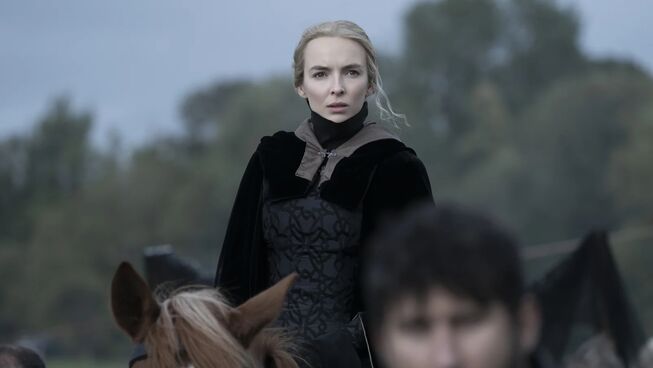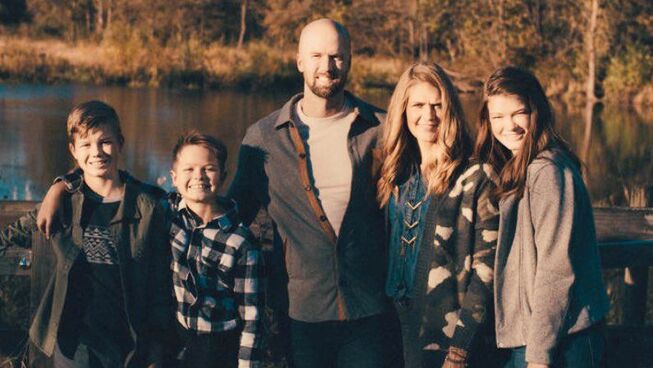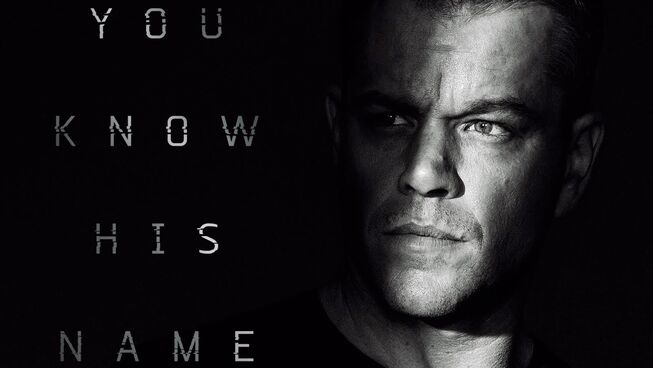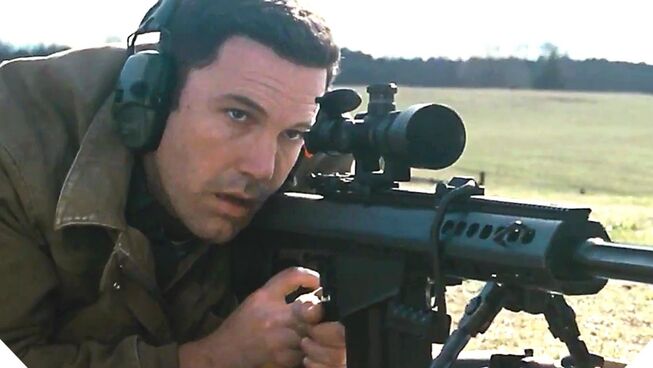
3.5 out of 5 stars
Director Ridley Scott is celebrated for creating period epics and sci-fi adventures visually rich in color and texture. Interestingly, Scott did not emerge as one of the most influential directors in Hollywood because of his academic pedigree at an elite filmmaking school. The eventual movie magnate instead studied graphic design in London. Consequently, Scott’s movies are known for being tapestries of elemental lighting (Blade Runner), intricate costume designs (Kingdom of Heaven), stunning landscapes (The Martian), and elaborate set pieces (Gladiator). The Last Duel is familiar territory for Scott who once again delivers a historically accurate period piece filled with compelling dialogue and brutal combat sequences. The tense drama is set against a backdrop of imposing stone castles with muddied courtyards and medieval French countryside, all filmed in muted tones of blue and gray.
Not since 1998’s Good Will Hunting, has Academy Award-winners Matt Damon and Ben Affleck performed double duty by starring in and adapting a screenplay based on a nonfiction account of the events leading up to and including the last legally sanctioned duel in 14th century France. Sporting a decided bogan haircut, Damon plays an honorable knight named Jean de Carrouges. He learns that his wife, Marguerite (Jodie Comer), was viciously assaulted by her husband’s friend, Jacques Le Gris (Adam Driver), an upstanding and influential squire. When Marguerite’s allegations are mocked and treated with suspicion by the Church, de Carrouges challenges Le Gris to a duel to the death in defense of her honour. Complicating matters further, de Carrouges’ defeat would be viewed as proof of Marguerite’s perjury and result in her being burned at the stake.
With help from screenwriter Nicole Holofcener, Matt Damon, and Ben Affleck structure the narrative into three Rashomon-Style chapters. Each chapter assesses the events surrounding the sexual assault through the eyes of de Carrouges, Le Gris, and Marguerite and reveals their distinct perspective and interpretation of reality. The three of them differ in their perceptions of what motivates behaviour. Consequently, the truth unfolds differently for each person. This technique punctuates the worst in the men who surround Marguerite, men who reassure themselves with notions of chivalry, piety, and titles of social hierarchy.
The film embraces a level of self-awareness around #MeToo messaging and reminds the audience that although some things have changed after 800 years, other things have not. For instance, the smarmy and opportunistic Count Pierre d’Alencon (Ben Affleck), with bleached boy-band bob, leverages his social standing in hypocritical and depraved ways that are familiar in this postmodern world. Jean de Carrouges perceives himself as a doting and sacrificial husband, but others see him as abusive and petulant. His cheek is marked with a hideous scar that he flaunts with bitterness rather than as a sign of duty to King and Country. The vulture-like Le Gris is handsome and charming with a reputation for womanising. He can not understand how anyone could resist his appeal. The viewer knows his type all too well.
The Last Duel is good, but a few nitpicks of the film prevent it from being great. The cinematography is beautiful, but the editing can be disorienting. At times, Sir Ridley Scott deviates from the Rashomon narrative. For example, a scene in the second act is omitted from the first, preventing the viewer from seeing another character’s perspective. Additionally, there is no attempt at period accents which can distract from the seriousness of the subject matter. Except for the final vicious duel, the battle sequences feel rushed. Scott is notorious for releasing director’s cuts with sometimes 30-40 minutes of extra footage. One wonders how much blood and guts were left on the cutting room floor. In the end, the movie pivots off Marguerite’s power and presence. Jodie Comer’s performance is a force that upstages her A-lister costars. The award-winning actress continually drives home the inherent value of women and how powerful men are blinded to their own boorish behaviour.
REEL DIALOGUE: Who can you trust?
As The Last Duel proves, things have not changed much in the world. Throughout history, there has always been the question of who to trust. It is difficult to know who is the bearer of truth and justice. The government, schools and even churches have proven to be suspect when it comes to trust. Thankfully, there is one place that the truth can still be found. Not to sound cliched, but the Bible does provide answers to this question and more.
Where do you go in the Bible to find answers on trust and truth? John 14, The book of Romans, Proverbs 3:5-6, Psalm 37:4-6, Hebrews 11






